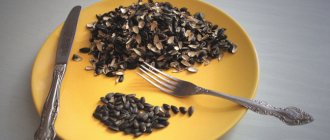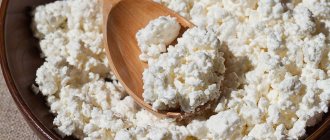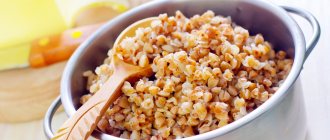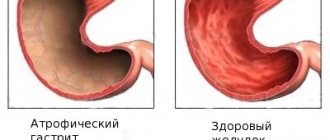Gastritis is an incredibly unpleasant disease that causes severe pain during exacerbation. For this reason, you have to give up most foods that bring joy. But what about everyone’s favorite ice cream? Is it possible to eat ice cream if you have gastritis, especially during periods of exacerbation?
Doctors give people with this disease a list of prohibited foods. Based on it, it is recommended to eat boiled fish, foods that are steamed, boiled or baked in the oven, and you can forget about delicious delicacies. However, in reality, everything is not so terrible, the main thing is to keep yourself within reasonable limits, follow certain rules, sometimes pampering yourself.
Why can't you eat ice cream if you have gastritis?
Doctors prohibit patients with gastritis from eating ice cream for the following reasons:
- Having diseases of the gastrointestinal tract, it is important to eat warm foods, and ice cream is one of the cold ones.
- Most often, ice cream uses dyes, shock absorbers and other harmful additives that irritate the gastric mucosa.
- Desserts often have high fat content.
In reality, everything happens differently, and most people with gastritis eat ice cream if the disease is not in the acute stage. It is important to choose trusted manufacturers. They use high-quality products for production and their ice cream does not contain dyes or harmful additives.
What effect do frozen meals have on the stomach?
In order to understand why medical professionals prohibit the consumption of frozen foods for gastritis, it is important to know the mechanism of their effect on the stomach. When inflammatory processes occur in the main organ of the digestive system of your body, cold foods can only intensify them by irritating the mucous membrane.
Among other things, the digestive function is inhibited - the body spends more energy on heating the food, and the digestion process is inhibited. In order to solve this problem, it is important to eat food that is heated or cooled to body temperature. If we talk about ice cream, then it also needs to be warmed up a little, since very cooled dishes that enter the stomach enhance motor function in a healthy person. In this regard, food, without having time to digest, ends up in the intestines. Moving along it, the undigested lump negatively affects the functions of this organ and provokes stool disorders.
Recommended temperature for food intake for gastritis
Regardless of the type of gastritis, in order to avoid unnecessary irritation of the mucous membrane, all products must be consumed warm. Very hot food, as well as very cold food, can cause stomach pain and provoke exacerbations.
For this reason, no matter how great the temptation is and no matter how much you want to cool off in the summer heat, you cannot eat cold ice cream if you have gastritis. In rare cases, when a person still allows himself this delicacy, it must be melted first. You can eat a little ice cream in this form - just a few spoons.
How to protect yourself from negative consequences?
A patient with gastritis must not forget that his main goal is to restore and further maintain the functioning of his stomach. For this reason, in addition to following a strict diet, it is important to lead a healthy lifestyle. Give up bad habits and try to eat small portions after a certain time.
Remember about your physical fitness. It is important to exercise and walk every day to restore health and cure illness. Physical activity should be gentle so as not to harm the stomach during an exacerbation of the disease.
You must always remember that not only sweets, but also other foods that a person with gastritis wants to eat must be chosen especially carefully. Even a product familiar to many, jam, can be dangerous. A patient with high acidity in the stomach can only consume sweet, not sour, jam. And when the acidity is low, sour jam will come in handy.
However, there is a product that will benefit any stomach acidity. It is called honey.
It contains a large number of useful substances. It has a positive effect on the healing processes of ulcers that appear on the inflamed surface of the gastric mucosa. In addition, it helps to properly produce gastric juice. For example, taking honey a few hours before meals can greatly reduce the acidity in the stomach. And if you try a honey infusion at low temperature, you can activate the process of secretion of gastric juice.
Gastritis is a pathological process manifested by inflammation of the gastric mucosa. Causes of the disorder: exposure to stress, disturbances in the diet and nature of the diet, excessive physical activity. Gastritis occurs under the influence of pathogenic microflora, external toxic substances, medications and alcoholic beverages.
In the absence of adequate treatment, the disease becomes chronic. Each form of gastritis has its own drug treatment regimen, but the main condition is adherence to a strict diet and avoidance of foods that irritate the gastric mucosa and cause severe exacerbations.
The most common form of gastritis is catarrhal. It is divided into gastritis with an increase or decrease in the secretory function of the epithelium.
Patients often ask whether ice cream is allowed for gastritis. The answer depends on the type of disease and the quality of the product consumed.
Prevention
Prevention of gastritis should include proper nutrition, regularity and the absence of stressful situations. It is stress and lack of a normal diet that lead to serious problems with the digestive system. If you maintain your health at an early age, then in the future you will not be able to deny yourself anything.
But ice cream, although it is a specific product, is still one of the favorite treats of children and adults. The main thing to remember is that the composition is not always natural and can cause a lot of harm to the stomach.
Composition and types of ice cream
Ice cream contains a number of high-calorie components:
- reconstituted milk;
- cream;
- sugar;
- chocolate;
- vegetable fats;
- butter;
- nuts;
- coffee.
Sometimes fruit and berry juices are included.
Ice cream often contains preservatives, stabilizers, flavor enhancers and sweeteners. With the help of components, they improve the taste and color of the product produced and extend the shelf life. The use of artificial ingredients is harmful for patients suffering from gastritis.
Fruit and berry varieties
Manufacturers offer a wide range of fruit and berry ice creams. Their basis is juice or syrup from fruits and berries. Dyes and synthetic essences are often added to products.
The variety is low in fat and low in calories.
Milk-based ice cream
Produced from skim cow's milk. Contains small amounts of sugar, fat, food additives. The variety is suitable for use for gastritis.
Cream based ice cream
One of the highest-calorie and fatty products in the category is ice cream containing butter.
Studying the composition
To find out whether ice cream is good for gastritis, consider the composition. This product significantly increases the level of serotonin, which is considered the “happiness hormone”. Almost all ice cream components are high-calorie foods. These are milk and cream, chocolate and sugar, butter, nuts and fats.
An integral part is the addition of preservatives and stabilizers, sweeteners, and flavor enhancers. They make the color attractive and extend the shelf life. However, they are artificial components, therefore they have a detrimental effect on the human body and the inflamed mucous membrane in particular.
The main types of frozen products will be discussed below. They will help you understand what kind of ice cream you can eat if you have gastritis.
Berry, fruit varieties. Some manufacturers include juice in the composition. The product may be based on syrup obtained from berries. Alas, synthetic additives and dyes are used especially often. Low fat, low calorie content.
With milk. Skimmed milk is used for production. There are few fats and sugars, additives are minimal. Some varieties are suitable for use with a problem stomach.
On cream. Cream and butter make ice cream very high in calories and fat.
Ice cream for gastritis
There are a number of reasons why it is not recommended to eat ice cream if you have gastritis.
- Proper nutrition for gastritis excludes eating too hot or too cold foods. Food should be at room temperature, otherwise it irritates the gastric mucosa and develops an aggravation.
- Excess fat adversely affects the gastrointestinal tract with gastritis. It is not recommended to use creamy ice cream.
- Ice creams produced by the food industry contain synthetic additives that are detrimental to health. It is better to completely stop eating ice cream if you have gastritis.
- For gastritis with high acidity, eating ice cream is prohibited by gastroenterologists. In case of illness, the product provokes pain, nausea, belching and heartburn.
Is a sweet dessert healthy or not?
Ice cream is a chilled dessert made from dairy products. According to scientists, ice cream, like chocolate, produces the happiness hormone - serotonin. Sweetness in small quantities is even beneficial, as it contains vitamins A, B, E and D, calcium, zinc and phosphorus. But at the same time, there are a number of reasons why eating ice cream for gastritis with high acidity is strictly prohibited:
- The diet consists of warm dishes, and ice cream is eaten only cold;
- This is a fatty product that is difficult for the stomach to digest.
Most of these products contain large amounts of flavorings and preservatives, which further reduces their usefulness.
Natural, melted, low-fat ice cream can be eaten in very small quantities with a low acidity level. This is done during the period of remission, when there is no sensation of pain in the stomach area. Before this, it is advisable to undergo an examination to make sure that the mucous membrane is in good condition.
How to replace ice cream
For those who suffer from acute or chronic gastritis, it is better to give up sweets. Sometimes it is allowed to use low-fat varieties.
Dairy ice cream
The safest thing to use for gastritis is milk ice cream. It contains a minimal amount of fat and artificial colors.
It is recommended to melt the ice cream before use so as not to injure the mucous membrane.
A reasonable option is to replace the frozen product with another sweet. The diet for gastritis includes sweet foods. For gastritis, honey, rich in vitamins, essential amino acids and easily digestible carbohydrates, is allowed.
Honey coats the gastric mucosa and normalizes motility. This leads to the elimination of heartburn and normalization of stool. The product is prohibited if you have diabetes or allergies.
For gastritis, you are allowed to eat pectin marshmallows that do not contain artificial colors. The product reduces stomach inflammation.
Marmalade and fruit puree
Products are allowed to be consumed if they do not contain dyes. They contain pectins, which are good for the stomach. For fruit purees, it is better to choose the apple variety. The product can be sweetened with honey or sugar if desired.
It is recommended to consume ice cream during stable remission. When used, the patient should not experience discomfort in the epigastric area. Before this, it is worth undergoing an examination and checking the condition of the gastric mucosa using instrumental diagnostics. It is not recommended to expand your diet without consulting your doctor.
Ice cream is a favorite dessert, especially in the summer. Despite this, it should not be eaten if there are a number of diseases, including pathologies of the digestive tract. Many people are concerned about the question: is it possible to eat ice cream if you have gastritis?
Product Impact
Among all diseases of the gastrointestinal tract, pathologies of its upper parts occupy a leading place. The esophagus is affected less frequently, since its mucous membrane is highly resistant to chemical and mechanical irritants. Gastritis occurs many times more often than esophagitis.
This is due to the fact that the stomach is constantly exposed to negative factors, such as:
- Low and high temperatures. People often eat without observing the thermal regime of foods and dishes. This causes a disruption in blood supply, which is an important element in the development of the inflammatory process.
- Exposure to chemical factors. Most products contain preservatives, flavors and dyes, which have a detrimental effect on the mucous membrane. As a result of this, it loses its protective properties. For this reason, hydrochloric acid affects the deep layers of the stomach wall. In addition to the above chemicals, alkalis and strong alcohol also cause harm.
- Irregular meals. If a person eats without a specific time schedule, then hydrochloric acid accumulates in the stomach, which leads to the destruction of the mucous layer.
In the clinic of gastritis, it is customary to distinguish two main forms, the difference between which depends on the secretory activity of the stomach. With increased acidity, the hyperacid form develops, and with low acidity, the hypoacid form develops.
Ice cream is a sweet that can be made from milk, berries or fruits. Its distinctive feature is that it is consumed cold. It is customary to distinguish several varieties of this product, due to its main component. Fruit and berry ice cream is called sorbet. They are produced using juices or purees. At the same time, these types of cold dessert are characterized by a low calorie content.
There is also ice cream, which is made from dairy cream. This variety contains the highest amount of fat, but has the softest consistency.
Dairy ice cream is produced more often in large volumes by large enterprises. Its production has been put on a conveyor belt, but it is significantly worse than sorbets or creamy ones. Sometimes various additives are used, such as chocolate, jams, berries. Ice cream is served in a waffle cup, on a stick, or in a bowl if ordered in a cafe or restaurant.
Composition of the product
The components of ice cream differ depending on the manufacturer and variety. So, most often it includes:
- Butter or other vegetable analogues. Palm oil is widely used for the production of ice cream and confectionery. It is worth noting the fact that the organoleptic properties of a product in which similar vegetable fat was used will be worse than that of one with butter.
When using natural products, ice cream will always be high in calories and will also contain microelements and vitamins. The value lies in the fact that all dairy products are rich in calcium. This element is necessary for the normal development of the musculoskeletal system.
Taking into account the use of fillers, you need to carefully select it. Chocolate, nuts and berries that are added to the product are strong allergens. You should be careful when eating ice cream with nuts, as they cause one of the most severe manifestations of individual sensitivity, such as anaphylactic shock.
You can also make this dessert at home. To do this, you need to mix all the ingredients and freeze them.
How to choose the right ice cream at the counter
Sometimes you don’t have time to make ice cream yourself, but you want to get a dose of serotonin here and now. Then you need to know a few rules when choosing ice cream in a store.
The first thing to do is look at the packaging and find information about GOST. GOST prohibits the use of vegetable fats.
Next you need to look at the composition and presence of additives. Nuts, marmalade, candied fruits are natural additives that will not cause any harm. Ice cream with berry or fruit flavors is unlikely to contain natural fruit juice, so the flavors used will be noted in the composition.
- Fragrances, in turn, are allergens, so you need to choose such a product with caution.
- Ice cream made from natural milk will not be watery and the melting process will be slow, unlike a vegetable-butter dessert.
The price of the product speaks for itself; if the product is natural, it means it costs more.
Ice cream for gastritis
There are several reasons why you should not eat ice cream if you have gastritis:
- Exposure to the stomach of low temperatures. During the inflammatory process, it is necessary to ensure blood flow to the affected area. If there is this product, then such an effect cannot be achieved. On the contrary, low temperatures cause vasospasm, which leads to insufficient blood supply. Essentially, consuming this product will hinder the healing process.
- Contains harmful chemical compounds. Most varieties of ice cream that are sold in stores contain various substances that act as stabilizers, colorants and flavor enhancers. They are of synthetic origin and have side effects on the human body. The entry of such substances into the stomach provokes not only an exacerbation or intensification of symptoms, but also poisoning.
- High percentage of fat content. If an ice cream or other type of ice cream is made according to the standards, then it has a high percentage of fat content. With all types of gastritis and ulcers, this puts a lot of stress on the digestive tract. The entry of undigested fats into the lumen of the duodenum will provoke pancreatitis, colitis and other pathologies.
For both types of pathology, eating such a product is prohibited. Ice cream for gastritis with high acidity increases the pain syndrome and increases the acid level, and for hypoacid gastritis, fats are not broken down and cause disturbances in other parts of the gastrointestinal tract.
In rare cases, patients with low acidity are allowed to eat a little warmed low-fat ice cream, but this can only be done with the permission of the attending physician.
In what cases is ice cream allowed?
As you know, there are several types of gastritis: with increased secretory activity (when parietal cells secrete too much hydrochloric acid), as well as with decreased - this type of gastritis occurs due to insufficient production of hydrochloric acid. In addition, it is customary to distinguish atrophic gastritis, a disease in which gastric juice contains practically no hydrochloric acid, due to which the latter loses its quality. When choosing a diet, as well as determining which foods can and cannot be consumed by a patient with gastritis, it is imperative to take into account the level of activity of the parietal glands and the synthesis of hydrochloric acid.
And now a few words about how permission to eat ice cream and a type of gastritis are connected. A categorical ban on delicacies applies only to patients suffering from hyperacid gastritis (that is, a condition in which there is an increased level of hydrochloric acid synthesis). But for those patients whose illness arose due to insufficient synthesis of hydrochloric acid, ice cream can, in principle, be consumed. However, this must be done with a sense of proportion and follow some rules:
- Ice cream can only be consumed in its melted form. Let the product not be brought to the state of sweet milk, but it should have a temperature as close as possible to room temperature. In this way, you can protect your sick stomach from the need to increase peristalsis;
- Choose a product made from milk with minimal fat content. This can be done just by looking at the packaging - the optimal fat content should be about 3-4%, no more;
- Give preference only to ice cream that is made with the least amount of preservatives, dyes, dietary supplements, stabilizers, emulsifiers, flavor enhancers and other completely unhealthy components. After all, the main harm for patients with gastropathology is observed due to the use of these substances.
- If possible, it is better to prepare the treat at home. The safest products are those made with your own hands from natural ingredients. The ice cream may not be as tasty as store-bought, but it’s still better than nothing.
Contraindications
In addition to the fact that ice cream should not be eaten if you have gastritis, it is also not recommended for a number of diseases:
- Pancreatitis and cholecystitis. These pathologies require strict adherence to a diet, which also includes avoiding ice cream. Otherwise, the process of necrotization of the pancreas or gall bladder begins. This is an absolute indication for emergency surgery. In addition, dairy products place excess stress on the liver.
- Lactose intolerance. There is a small percentage of people who are unable to digest dairy products. This pathology is congenital and requires patients to completely eliminate lactose from the diet. Such children are not even breastfed.
- Allergy to chocolate and other additives. If a person has an allergic reaction to any component of ice cream, then they should not eat it. This is fraught with the development of a direct pathological process. It mainly manifests itself in the form of urticaria or angioedema.
- Angina. If you have an inflammatory process in the throat, you should not eat cold foods, as this causes the disease to spread to surrounding tissues, increase the temperature and delay treatment. It is worth noting that ice cream itself often causes a sore throat.
- Severe forms of gastritis. Erosive gastritis or reflux esophagitis is difficult to treat. They are chronic in nature and practically do not end with complete recovery.
If there are objective contraindications, it is worth limiting the use of this product so as not to harm the body.
Ice cream alternative
There are a large number of desserts that are allowed to be consumed for gastritis, both with high and low acidity. Among them are:
- Marmalade. Gelatin and natural juices are used to prepare this product. They are subjected to long-term heat treatment, as a result of which the organic acids that are included in the composition are destroyed or neutralized. The choice of marmalade for gastritis is made taking into account that it does not contain chemical dyes and additives.
- Marshmallow. The advantage of this product is that it does not contain flavorings, acids or other substances that harm the stomach lining. There is a large selection on the shelves; you can also buy chewing marshmallows.
- Jams. They are made without the use of preservatives and stabilizers. This feature makes them practically harmless. Natural jams for gastritis can only be eaten from pears, since they contain the least amount of acid.
If desired, you can replace ice cream; the above products are healthier. In addition, the risk of worsening the condition when using them is minimal.
Ice cream should be prohibited for gastritis. The issue of preparing a diet is approached competently, and you need to choose the right alternative sweets so that a person does not feel disadvantaged.
What components are included in ice cream, see below:
The food supply of a patient with gastrointestinal diseases is extremely limited. The basis of the diet should include food rich in vitamins for a speedy recovery. Despite the strictness of the diet, sometimes there is a desire to treat yourself to something sweet, and a pertinent question arises about eating ice cream for gastritis and ulcers.
Scientists have long established the fact that delicacy improves mood thanks to the serotonin it contains. When a person is happy, the healing process goes much faster. Gastroenterologists do not recommend ice cream due to the high level of quickly digestible carbohydrates it contains. Let's consider this issue in more detail.
Gastritis and ice cream
Is it possible to have ice cream if you have gastritis? It's no secret that too chilled food negatively affects the mucous membrane, constantly irritating it. If you have a sick stomach, doctors recommend taking food only at room temperature.
There are these types of delicacies:
- Frozen fruit juice. It is prepared on the basis of fruit syrup with the addition of dyes and synthetic essences.
- Creamy. Considered the highest calorie product, ice cream is the most popular in this category.
- Dairy. It is made on the basis of skim milk and contains sugar, fats and various additives.
Recommendations for use
When consuming ice treats, the following recommendations should be followed:
- A diagnosis of gastritis involves eating milk-based ice cream, which is not as fatty as cream and contains less coloring than frozen ice.
- Doctors warn: you can eat chilled treats only during the period of remission.
- You can choose frozen natural fruit ice and milk-based ice cream without additives. It is recommended to do it yourself at home.
- For consumption, it is necessary to thaw the sweetness so as not to unnecessarily irritate the mucous membrane.
- For gastritis with high acidity, ice cream is prohibited by doctors, as it irritates the gastric mucosa. If the acidity is low, the delicacy can be eaten, but preference should be given to frozen fruit ice, prepared at home without additives or preservatives.
- You should not eat ice cream during an exacerbation, as this will only worsen your condition.
The effect of dairy products on the stomach
First of all, you need to understand that gastritis can occur against the background of both high and low acidity.
Nutritional and dietary recommendations for the two species differ significantly. In the first case, doctors recommend avoiding as much as possible foods that provoke the production of gastric juice, thereby increasing acidity in the stomach. For type 2 disease, on the contrary, you need to eat foods that increase gastric secretion. Ice cream is a dairy product. And milk (low-fat) will not cause any particular harm to the gastric mucosa. It would seem that low-fat ice cream, correctly chosen and eaten in reasonable doses, will not bring much harm. But there are a number of factors that make ice cream not the most suitable treat for people suffering from gastritis. For the most part, this product is high in calories and burdens the entire gastrointestinal tract, which is extremely undesirable for gastritis.
Ice cream for peptic ulcers
Chilled sweet dessert belongs to the category of high-calorie foods that are undesirable for stomach diseases. Ice cream is prohibited for stomach ulcers due to its high fat and sugar content.
Gastroenterologists focus your attention on the fact that when making delicacies in industrial conditions, various thickeners, emulsifiers, and stabilizers are used, which is extremely harmful to a sick stomach.
A patient with an ulcer, even if it is in remission, is also undesirable to eat ice cream, since it can provoke an exacerbation. This is due to the high fat content of the product and its excessive consumption. Many varieties of ice cream contain tasty additives - chocolate, nuts, caramel, which also do not have the best effect on the epigastric mucosa.
Doctors give similar recommendations for duodenal ulcers. If you have such diseases, it is better to completely exclude frozen foods from the menu so as not to further injure your damaged stomach. Diseases of the gastrointestinal tract require adherence to a strict diet including healthy and vitamin-rich foods.
Factory-made ice cream and ulcers are not compatible with each other. The high fat and sugar content makes it dangerous for the stomach.
Alternatives
Unfortunately, ice cream in all its forms is very harmful to diseased digestive organs. What to do when you want something sweet, but everything is banned? In this case, you need to pay attention to an alternative to your favorite dessert.
Gastroenterologists have compiled a rating of the most popular treats for gastritis and ulcers:
- Honey This useful product will help cope with heartburn, normalize bowel movements, defeat colds and flu, and strengthen the immune system, which is very important for internal diseases. Honey contains a number of microelements and vitamins that benefit the body. The sweetness can be used in baked desserts, added to fruits and in its pure form. Gastroenterologists talk about the restorative properties of the product, since it envelops and regenerates the mucous membrane. It can be used for gastritis and ulcers outside the period of exacerbations.
- Marmalade. Along with it is fruit puree. Eating such dishes will not harm the stomach. Experts say they contain pectins, which are especially useful for gastrointestinal diseases. You should opt for apple jam puree or marmalade, which does not contain large amounts of dyes. To be sure of the quality of the sweet, try making it at home. This dessert will not contain harmful additives and can be eaten in small quantities if you have gastritis.
- Zephyr. Despite their sweetness, marshmallows in moderation are even useful for stomach inflammation. It is recommended to use the pectin variety of the delicacy, since it contains extremely little dye. You can make marshmallows at home; apple dessert is especially useful.
Experts say it is permissible to eat ice cream for gastritis, but only during remission. It is not recommended to eat the delicacy if you have gastritis with high acidity and ulcers. For all other patients, there is simple advice - choose ice cream with low fat content (up to 4%) and eat it in small portions, 2-3 tablespoons. If you experience pain during consumption, then it is better to refuse dessert. If you are not sure about the right choice, consult your doctor.
What varieties should you pay attention to?
If gastritis is a concern and low acidity has already been reliably determined, then you should pay attention to the following varieties:
- The simplest vanilla ice cream in a waffle cup. You can consume one pack without danger to your health, since this ice cream, even if it contains various chemicals, is absolutely harmless compared to all the others;
- You should only consume natural ice cream. All manufacturers are interested in selling their product, so on each label it is written that this particular ice cream is made using only natural ingredients. It is absolutely clear that this cannot be verified. The only way to increase the likelihood of purchasing a “healthy product” is to buy a product in the middle and high price category.
In any case, you will have to forget about fruit, chocolate ice cream and any other varieties of this delicacy, the preparation of which uses jams, syrups and other additives.
Eating ice cream during the acute stage of gastritis is strictly prohibited. If this product is allowed to be eaten by doctors, it is only after achieving stable remission.
You can’t eat ice cream with hyperacid gastritis (high acidity), but you can eat ice cream with hypoacid gastritis (low acidity), but in small quantities and only of natural composition. Avoid delicacies made from fruit syrups and chocolate. The main thing is to eat in moderation, no more than one glass (50 g) per day!











